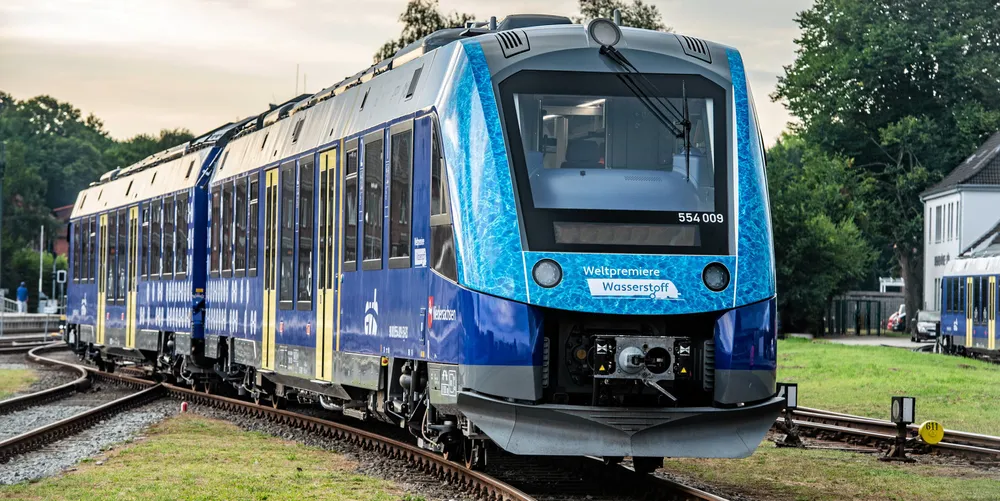Green light for world's first all-hydrogen railway — but how green will it really be?
German railway’s pioneering ‘zero emissions’ railway will initially use 'waste hydrogen' from local caustic-soda production, but Linde tells Recharge that it plans to produce renewable H2 for the line within three years

The world’s first 100% hydrogen railway has been given the go-ahead, paving the way for other rail operators to follow suit — but the scheme still has some way to go to back up its claim to be fully ‘zero emissions’.
State-owned German transport agency LNVG plans to replace all 15 diesel passenger trains on its Cuxhaven to Buxtehude route in the north of the country with 14 hydrogen fuel cell-powered models made by French industrial giant Alstom by the end of the year.
Zero emissions?
Questions remain however over the “zero emissions” claim Alstom and LNVG have attached to this project — at least for now. The hydrogen will be sourced from Dow’s chemical plant in nearby Stade, which produces hydrogen as a by-product of chlor-alkali electrolysis, used to produce caustic soda and chlorine from salt water.
And the route plans to switch over to locally produced green hydrogen, with Linde aiming to build an onsite electrolyser next to the Bremervörde refuelling station within the next two to three years, Recharge understands.
The size of the electrolyser is yet to be determined, but Linde plans to source the renewable power locally.
Two Coradia iLint models have been in operation on the route since 2018, and another in Vienna since 2020. And Alstom has taken the train for demonstrations in Poland, the Netherlands, France and the UK in the hope of drumming up business among rail operators working on non- or partially electrified routes, who are under pressure to slash their emissions.
Battery trains, some with a range of up to 80km, are also touted as a potential replacement for diesel-powered rail, especially on short or partially electrified lines where the battery can be charged by overhead cables as it travels.
(Copyright)